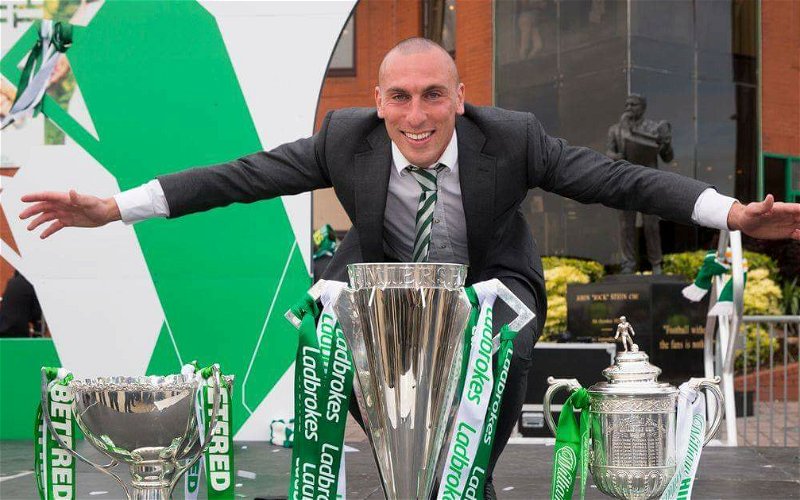It is hard, sometimes, to escape the notion that the Scottish press views Celtic as being a club wracked by instability.
If it’s not managers being unhappy it is players. Or it’s the fans turning on them for some imagined reason or another. If it’s not that we’re an unhealthy influence on the sport, and on ourselves, because we have too much money for Scottish football, the problem is that we don’t have enough to compete in Europe.
Boardroom politics fill papers. Relationships at the club are examined in minute detail. Everyone’s waiting for us to slip. Everyone’s waiting for us to fall. Envious eyes watch our every move, ever attuned to the slightest blip in form or noise out of the dressing room. Rumours are amplified to giant size, fused into weapons, and then used to beat us.
One word is resurrected over and over again; the word “crisis.”
I did a piece not that long ago on the worst media stories involving the club.
You can read it here, if you have a mind to, and the stomach for it.
It is long, but it could have been longer.
Today, I read John Hartson deny we’re “in crisis.”
At another club, you’d be forgiven for asking whoever said that we were.
But this is Celtic, and the word is being mentioned because we’ve lost two games in a row and are seemingly in a run of bad form that includes winning the League Cup, qualifying for the next round in Europe and trouncing Kilmarnock, who were top of the league at the time.
That’s not new, though, because it’s always there just waiting to be sprung on us. The media has overused it to the point of wearing out the treads. It no longer has traction. It no longer sticks. Yet it never loses its ability to grate on us.
To the hacks, Celtic is never sailing smoothly. We’re never doing just fine, even in the midst of our greatest successes. The Invincible team was just waiting to be broken up. The manager was on the verge of being poached by some EPL club backed by the huge money down there. When we post good results, the suggestion is that the manager will be smarting because he doesn’t get to spend any. If we ever posted financial figures like those a certain other club just did, The Daily Record would send another hearse to our front door.
If you believe the press around here, at Celtic, everything is in flux, all the time. There’s never a settled environment.
Kris Commons said at the weekend that the Hibs defeat had re-opened the wounds between the manager and the board; the suggestion is garbage, of course, but to read that piece you’d think we were another bad result away from his resignation or sacking.
If you had nothing but the reportage of Scotland’s assorted hacks to go on, you’d have a very distinct impression that Celtic is a club permanently in crisis, salvaged only by periods of relative calm. That this description so perfectly fits the operation across the city is only one of the reasons why the idea is so ridiculous, so offensive, so clearly divorced from the facts.
Yet, in truth, our club has been one of Britain’s most stable football operations in the last twenty years.
Martin O’Neill was at the club for five years and left it on good terms.
Gordon Strachan was here for four and his parting was amicable.
Only the Mowbray campaign was characterised by division and anger in the stands, and it lasted less than a season.
Neil Lennon left with everyone’s best wishes.
His replacement Ronny Deila departed gracefully with a second league title.
There were bad points for all of them, but the club never drifted into darkness.
Through all of it, the off-field stuff was pretty good and our financial position was strong.
Losses in one year were offset by profits in another; we never accumulated significant, far less dangerous, levels of debt. We never, at any point, entered territory which made UEFA’s FFP committee ask to see the books.
European group stage football has been such a regular feature that it’s now assumed as much as expected, although the progression path has gotten markedly more difficult with time.
We do not get the credit for any of it, of course. Instead we get sniped at for our accomplishments, and managers and chairmen who do not wish us well get to suggest nonsense about us needing to be handicapped “for the good of the game.” Our success is never viewed as something healthy, although, perversely, the rest of Scottish football is just presumed to be waiting, patiently, for a time when two clubs, rather than one, would dominate the rest.
“Fans want to see a title race,” is the constant refrain from hacks desperate to see one involving their own favourite club. Fans, actually, don’t care about such a thing if their own club isn’t in it. Aberdeen supporters have had four years of being second; they are in no hurry to return to a time when the best they can hope for is finishing third.
For the last couple of weeks, part of the media has been promoting the idea that one of the clubs, perhaps Kilmarnock, perhaps Hearts, could “do a Leicester.”
Yet as every Celtic fan knows, if the day ever came the club who did it – with the exception of one – would get exactly none of the credit for the achievement. Instead, a pitiless spotlight would be shone on Celtic Park and how failures at every level had contributed to it. Instead of devoting page after page to the club who had just won the title, the media’s coverage would be all about the floundering team in the East End, and the whiff of brimstone in the air.
And it would not be a gleaming Aberdeen or Hibs crest that adorned the pages of the newspapers front and back, but the cracked and broken badge of ours.
This is the situation, and we’ve stopped expecting anything else. If we go into the New Year behind in the table, the media narrative will be of a club heading towards a collapse. Even if the summer’s folly was rectified in the transfer window, it would be viewed as “panic buying”, our trying to spend our way out of the hole, instead of what it will be; in no small measure, planning for the next close season to maximise our chances of reaching the Champions League.
Even in the likely event we reach January at the top of the pile, anything we do spend will be viewed as merely insurance to keep us there, as a reaction to what’s happening somewhere else rather than as an action independent of that, and focussed on our own future advancement. For us, it will not be about staying ahead, but about moving further out in front of the rest. For the hacks, it will be all about keeping the chasing pack off our tail.
We accept all of this because no matter what distorted view is offered up by the media, the reality of the situation at Parkhead has not changed a bit. The fundamentals here are strong, and that truth cannot be erased by negative spin. Seven trophies in a row is the proof of our inherent stability, and strength across the whole club.
The media used to exist to deliver the news.
Now it thrives on speculation and gossip and discord and disharmony.
Except when those things are present but it chooses to ignore them.
We all know that Scottish football has one teetering ruin of a club, built on crumbling foundations, accumulating debts, storing up trouble for its future … and that’s not us.
We understand the media better than its proprietors think.
Our fans are not their “target audience.”
Our fans have the blogs and the forums, and on those the club gets the praise its earned and the criticism it deserves. No more, no less. The more the hacks try to create drama out of nothing, and turn drama into crisis, the more we show them up, the more they show themselves up, for what they are.
It used to be that it was done to hurt us. We’re past the point where they can do that to us now. They are past the point of having that kind of power. Their coverage still has the ability to make us itch, but that’s what fleas do and that’s what’s left of their influence.
Come tomorrow, all the coverage of today will be only more chip wrappers.
Celtic will still be standing.
Celtic will still be strong.
You can discuss this and and all the other stories by signing up at the Celtic Noise forum at the above link. This site is one of the three that has pushed for the forum and we urge all this blog’s readers to join it. Show your support for real change in Scottish football, by adding your voice to the debate.

